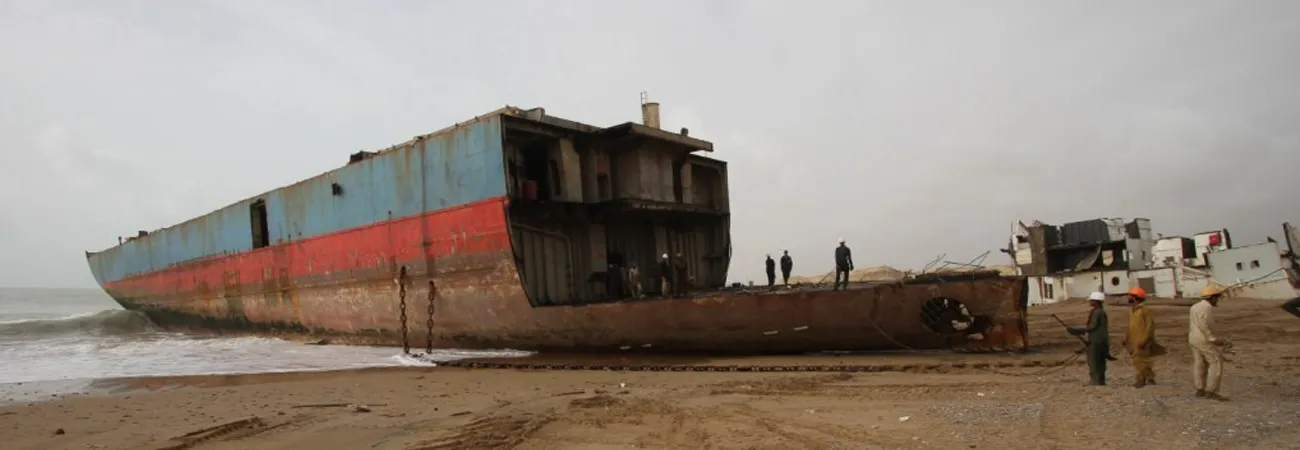i ECONOMY
the world’s third largest ship-breaking yard in Balochistan stretching over 10 kilometers – is no more an attractive spot for the dying mighty ships due to domestic and global factors, reports WealthPK. This yard is located northwest of Karachi, around 46 kilometers. Since its inception in the 1970s, it has grown to play a significant role in the economy of Pakistan. During the 80s, Gadani was the largest ship-breaking yard in South Asia. However, with the passage of time, the ship-breaking yards at Alang in the Gujarat district of India and Chittagong, Bangladesh surpassed the operations at Gadani. Today, Alang undoubtedly is the world’s largest ship-breaking yard, with Chittagong ship-breaking yard occupying the second position. “Gadani ship-breaking industry provides 20,000-25,000 direct jobs, while 200,000-250,000 are indirectly related to the industry,” said Asif Ali Khan, an office-bearer of the Pakistan Ships Breakers Association.
The rupee’s depreciation against the dollar in the last two years especially caused a big dent in the industry, as the breakers were unable to buy old ships. The high cost of dollar is pushing the old vessels to India and Bangladesh, as the Pakistani buyers are grappling with the pricey dollar. But this is not the only reason, as the apathy of successive governments and lack of proper infrastructure also added salt to the wounds of Gadani ship-breakers. The high prices of utilities and smuggled steel from the neighboring country also put pressure on this industry in Pakistan.
Gadani is ideal for ship-breaking due to its topography and location. The ships may easily beach here regardless of high or low tides due to the fast transition between shallow and deep waters. The yard has 132 ship-breaking plots. With a combined average LDT of 1 to 1.5 million tons, currently, it handles 100-125 ships each year, including the supertankers of any size. A ship with 5,000 LDT is broken within 30 to 45 days, whereas in India and Bangladesh, it takes, on average, more than six months. Therefore, its efficiency is relatively better than other yards in South Asia.
This industry imports scrap ships and converts them into raw material (rerolling material), mostly for the rerolling industry and small and medium enterprises, including the cottage companies that produce steel. A fraction of the product, which also includes melted scrap iron and steel, goes to the remelting industry. Besides providing millions of tons of steel to the nation’s other industries each year, this ship-breaking business makes an annual tax contribution of over PKR20 billion to the national exchequer. The yard needs a revival plan to generate jobs and contribute revenue to the national exchequer.
“The industry must be revived in light of the international conventions and the government must ensure the workers’ constitutional rights by enforcing safety, social security and occupational health laws. Lastly, Pakistan must implement environmental laws at the national level and criminalize the illegal trafficking of hazardous wastes,” suggested the Maritime Study Forum in its report. The Forum recommends that the government ensure adherence to the international practice of thorough washing of a ship before its sale for dismantling.
Credit: Independent News Pakistan (INP)









